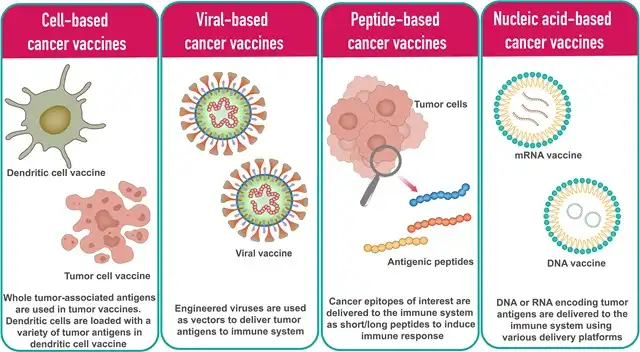Moderna’s mRNA Cancer Vaccine Shows Greater Effectiveness Than Expected
- Normal Liver Cells Found to Promote Cancer Metastasis to the Liver
- Nearly 80% Complete Remission: Breakthrough in ADC Anti-Tumor Treatment
- Vaccination Against Common Diseases May Prevent Dementia!
- New Alzheimer’s Disease (AD) Diagnosis and Staging Criteria
- Breakthrough in Alzheimer’s Disease: New Nasal Spray Halts Cognitive Decline by Targeting Toxic Protein
- Can the Tap Water at the Paris Olympics be Drunk Directly?
Moderna’s mRNA Cancer Vaccine Shows Greater Effectiveness Than Expected
- Should China be held legally responsible for the US’s $18 trillion COVID losses?
- CT Radiation Exposure Linked to Blood Cancer in Children and Adolescents
- FDA has mandated a top-level black box warning for all marketed CAR-T therapies
- Can people with high blood pressure eat peanuts?
- What is the difference between dopamine and dobutamine?
- How long can the patient live after heart stent surgery?
Moderna’s mRNA Cancer Vaccine Shows Greater Effectiveness Than Expected
When treating melanoma, the deadliest form of skin cancer, surgeons typically aim to remove as many cancer cells as possible through surgery. Subsequently, additional treatments like chemotherapy or radiation may be administered to eradicate any remaining cancer cells. Certain types of melanoma are considered high-risk for recurrence, including thick melanomas or those that have already spread to other parts of the body before treatment.
According to recently shared trial data, incorporating Moderna’s cancer vaccine into the standard treatment for melanoma significantly reduces the risk of death or recurrence in cancer survivors.
Moderna and pharmaceutical giant Merck are jointly developing an mRNA-based cancer vaccine, mRNA-4157 (V940), designed for patients with high-risk melanomas. This vaccine works by instructing the body to produce up to 34 “neoantigens,” proteins that exist only in cancer cells. Moderna provides each recipient with a personalized vaccine, carrying instructions for neoantigens specific to their cancer cells.
The underlying concept of the vaccine is to prepare the immune system by inducing the production of these proteins, enabling it to rapidly identify and attack any new cancer cells carrying these proteins, thereby preventing recurrence.
In the ongoing Phase 2b study KEYNOTE-942, Moderna and Merck are comparing the effectiveness of the cancer vaccine in combination with Merck’s FDA-approved cancer treatment drug, Keytruda, against Keytruda alone in preventing melanoma recurrence or death.
In 2022, they reported that within two years of treatment, the combination therapy reduced the risk of recurrence or death by 44% compared to using Keytruda alone.

Now, they announce that patients receiving both therapies have a 49% lower median risk of recurrence or death after three years of treatment compared to those receiving only Keytruda. The likelihood of distant metastasis or death is also reduced by 62%.
Moderna President Stephen Hoge told Reuters, “The durability of this response is very strong—over this period, they are essentially rock solid, which is quite a significant improvement compared to the standard therapy of using Keytruda alone. We believe that in some countries, the product could be approved and on the market by 2025 through accelerated approval.”
However, it’s worth noting that the KEYNOTE-942 study is relatively small, with only 157 participants. Nevertheless, Moderna and Merck have initiated a Phase 3 trial for cancer combination therapy, involving over 1,000 high-risk melanoma patients.
These companies are also exploring areas beyond melanoma, launching a Phase 3 trial to test the cancer vaccine in non-small cell lung cancer patients. If successful, patients may soon benefit from this personalized therapy.
Moderna CEO Stephane Bancel told Agence France-Presse, “We believe that, in some countries, the product may be approved and on the market by 2025 through accelerated approval.”
Moderna’s mRNA Cancer Vaccine Shows Greater Effectiveness Than Expected
(source:internet, reference only)
Disclaimer of medicaltrend.org
Important Note: The information provided is for informational purposes only and should not be considered as medical advice.



